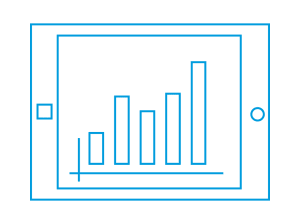Modernising internal audit to drive effective risk management and growth strategies
Internal audit plays a vital role in overseeing the effectiveness of government, enterprise risk management, compliance, internal control systems and processes. Internal Audit requirements are constantly evolving, yet constraints on resources can make it difficult to keep up.
We help our clients to elevate their impact by infusing value at every stage of the internal audit process. We team with your IA function to deliver purpose driven, digitally powered internal audits leveraging automation, analytics, dynamic risk assessment, and agile methodology that align with your strategy.
How we can help
RSM’s Internal Audit Services offer an integrated approach to ensure that all categories of risk exposure and controls are reviewed and assessed by people with the requisite skills and experience. This includes combining agile and data driven solutions that provide deep insights and foresights into risk and opportunities, achieving enhanced assurance and business improvement. Our internal audit practice collaborates closely with boards, committees, executives and management to tailor how we help you.
Our Internal Audit services include:
- Establishing an internal audit function.
- Delivering outsourced and co-sourced solutions by leveraging our expertise and experience.
- Supplementing an organisation’s existing internal audit capabilities. Given the strong demand for suitably skilled and experienced internal auditors, most organisations find it difficult to sustain their own full-strength internal audit function and associated technical infrastructure. We provide specialised skill sets and undertaking ones-off audit assignments or on a continuing basis.
- Strategic support to Heads of Audit to strengthen and augment their vital internal audit functions and help clients evaluate, innovate, and elevate their IA functions to higher performance.
- Performing independent external quality assessments on the Internal Audit activity and assisting internal audit functions with preparation for external and Internal quality assessments utilising the International Professional Practices Framework (IPPF) Quality Assessment Manual for the Internal Audit Activity.
- Providing audit methodology, training, and software advice
- Agile internal audit - We help clients apply agile methodology to internal auditing. By taking an iterative, time-boxed approach, agile methods support a collaborative environment for audit and the organisation, enabling them to solve business problems with speed.
- Business process analysis - We can analyse relevant financial and operational controls and processes, typically at the direction of the CEO, CFO, or other ‘C’ level executives. This includes root cause analysis when things go wrong, or sub-optimal outcomes are achieved.
- Probity audits to elevate your corporate integrity, manage conflict of interest, regulatory adherence and compliance and contractual and procurement integrity.
The role of Internal Audit
The role of internal audit is to provide assurance that a company's risk management, governance and internal control processes are operating effectively. Internal auditors must be independent from the operations they evaluate and report to the highest level in a company - senior managers and Board of Directors or the audit committee.
Internal auditors work with management to review systems and operations. These audits identify how well risks are being managed by the company and whether the right processes are in place, and whether procedures are followed. Internal Auditors evaluate the controls a company has in place. They also identify areas where improvements might be made and where procedures might be done more efficiently.
The internal audit process will evaluate and recommend ways to improve the effectiveness of a company’s control processes. It will provide assurance on whether a company’s risk management, governance and internal control processes are operating effectively by evaluating and recommending ways to improve the effectiveness of a company’s control processes. Internal auditors report to the Board of Directors and senior management of the company.
An external audit examines the financial records of the company and issues an opinion regarding the company’s financial statements. An external audit provides reasonable (but not absolute) assurance that the financial statements of the entity being audited are free from material misstatement. External auditors work for an independent audit firm and are normally appointed by a shareholder vote and, as such, are responsible to the shareholders or other stakeholders who are outside the company’s governing body.
The internal audit function assists management to improve internal controls by identifying weaknesses in systems and provides an opportunity to correct those weaknesses.
Internal auditors deal with issues that are important to the continued existence and prosperity of any company. This is done through a combination of assurance and consulting. The assurance part includes informing managers and directors how the systems and processes put in place by management are working. Consultation then takes place on how to improve these systems and processes where necessary. This provides directors and senior management with assurance that assists them in fulfilling their responsibilities to the company and its stakeholders. It also provides the directors and management with a way of showing shareholders and other stakeholders that they are managing the company effectively on behalf of the shareholders by evaluating important risks and highlighting where improvements are necessary.






